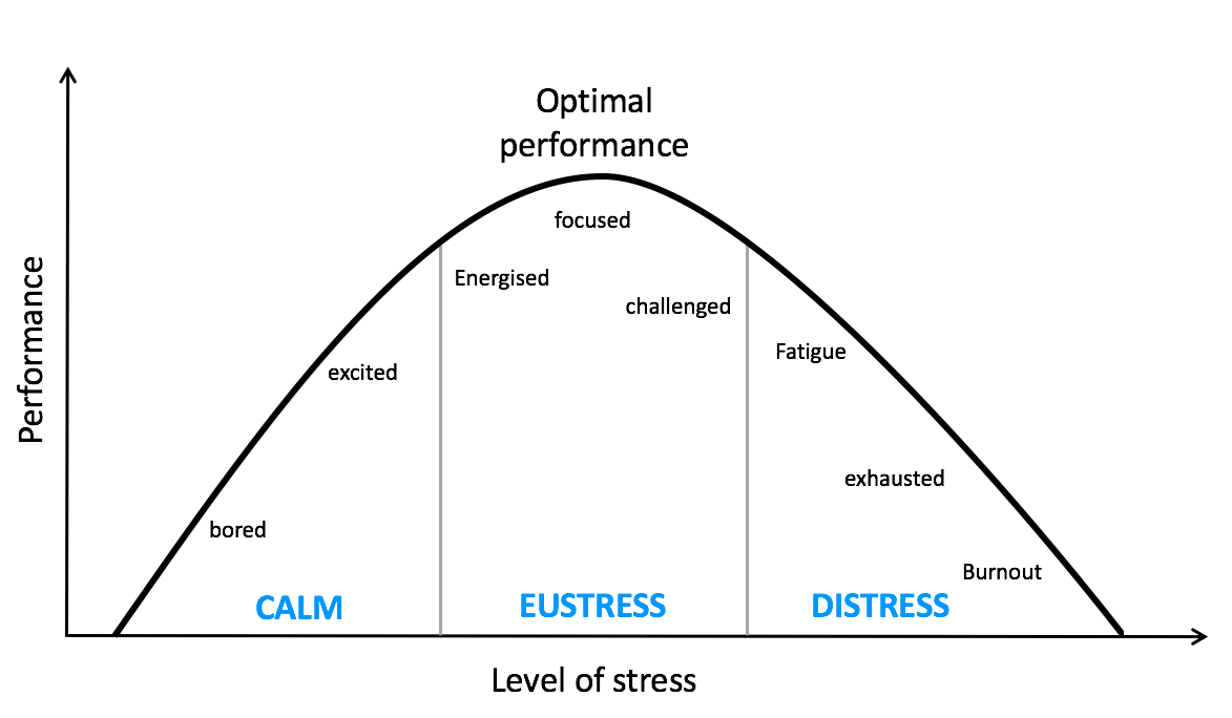In life we stumble across situations that cause us stress on a daily basis. Due to increasing performance and time pressure, people tend to feel even more stressed about a situation than they should be. But stress doesn’t necessarily have to be a bad thing. Learn more about the term “stress” and its different types.
What is stress?
In psychology, stress is defined as a response to a particular event preparing to meet a tough situation with focus, strength, stamina and heightened alertness. The body reacts to a certain situation in its environment by releasing chemicals in the blood. While many people believe that the term “stress” describes a negative situation, the chemicals can also give you energy and strength. In fact, there are two different types of stress: distress and eustress.

What is eustress?
Eustress is the good type of stress that works as a motivator. Eustress makes you feel excited about the challenge and is seen as an incentive to get things done. Feeling pumped up can promote the release of endorphines and makes you happier and more energized.
What is distress?
When the stress becomes too much to cope with, it’s identified as bad stress, also known as distress. Challenges no longer seem to be fun and there seems to be no end in sight. Continuous struggling with too much stress can exhaust your energy and drive, which leads to an increase in your blood pressure, rapid breathing and generalized tension.
It might be easier said than done but when you have a tough challenge ahead of you, one which scared you and you know is going to take a lot of work to achieve, try not to get too stressed out about it. Instead of freaking out, close your eyes, take a deep breath and embrace it. In fact, a little stress or the right kind of stress can help you stay motivated and to rise the challenge. Excite yourself with the thought of everything you will gain from completing the challenge and turn your distress into eustress.